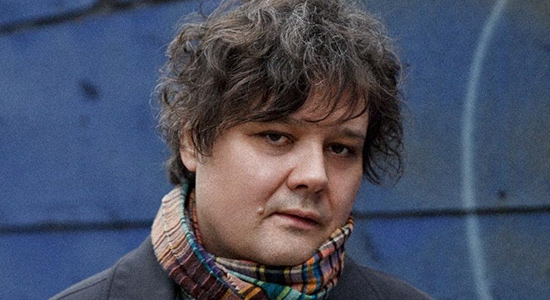
With his new album, Ron Sexsmith has made the soundtrack of his life
Beloved songwriter Ron Sexsmith never wanted to be a cult artist. “I could never figure out how to take what I’m doing and make it so that people can get it,” he says. “I always wanted hit records.”
Sexsmith is admired for the effortless perfection of his melodies and his thoughtful, earnest lyrics. His friends and collaborators have had hits—from the Barenaked Ladies to Feist—but so far, his acclaim has come more from critics and connoisseurs than from the paying public. “The people who like it seem to really like it, but it’s an acquired taste,” he says of his style.
When Sexsmith talks about his albums, he often refers to them by their producer: “the one I did with Steve Earle” (2001’s Blue Boy), “the Bob Rock album” (2011’s Long Player Late Bloomer), “the last one I did with Mitchell” (2013’s Forever Endeavour; Mitchell Froom, who had a hand in four other Sexsmith albums, either alone, with Tchad Blake or with Daniel Lanois). For Sexsmith, the producer defines the album, which adds significance to his choice to produce The Last Rider, his 13th album—himself.
Sexsmith says his primary concern has always been the songs, but he has often deferred to the producer in the studio, letting him choose the players and define the overall sound—and he knows listeners questioned some of the results.
“A lot of people didn’t like some of the Mitchell Froom/Tchad Blake production because some of their choices were pretty outside; the first album (1997’s Other Songs) especially was very sparse, and the drums sounded weird, but I liked all of that,” he says. “Some people didn’t like Cobblestone Runway’s production (by Martin Terefe in 2002) because it had electronic noises, and there’s a disco song on it.”
Sexsmith himself wonders about some of those choices. “I always felt (1999’s Blake/ Froom-produced) Whereabouts was a bit of a disaster, and the one I did with Steve Earle always to me sounded a bit like a demo rather than the record it could have been,” he says. “Although a lot of people tell me they like that one, I’m too close to it. (2004’s Terefe produced) Retriever is one I thought turned out nice. Even the Bob Rock album, which was probably my most successful, I can’t listen to it anymore because of the Auto-Tune. There’s a lot of people who have complained about that, too: ‘Why are you using all that Auto-Tune?’ I could always say, ‘Well, I worked with Bob, and he uses Auto-Tune.’ But this album, I was totally owning it.”
Sexsmith had hoped to work with Terefe, who also produced his previous album, 2015’s Carousel One, as well as 2008’s Exit Strategy Of The Soul, but Terefe had become too expensive after working on hits with Shawn Mendes and Mike Posner. So Sexsmith “put my producer’s pants on,” gathered his touring band, with whom he’d never recorded, and set out to do the record himself. Longtime bandmate Don Kerr co-produced.
“We were just laughing our heads off most of the time,” Sexsmith says of the sessions. “It felt like a camping trip. We recorded it at the Tragically Hip’s studio, which is this old colonial mansion near Kingston, Ontario. We were sleeping there, eating there and recording; it felt like Exile On Main Street or something, without all the debauchery. A little debauchery, but not much—a lot of drinking,” he says, laughing.
He wanted The Last Rider to sound more “current” than his last few records, which he says sounded “very retro,” but he didn’t necessarily want it to be as “super slick” as Rock’s work on Long Player. Sexsmith wasn’t interested in tailoring his album for current fashion: “Radio,” the lead single, snaps at the hand that could feed him with lines like “The shameless and the appalling/Have sunk things to a new low/What has become of the world we used to know?” in a song longing for the “golden age of radio.”
“The late ’60s to about ’74—for me, that was my favorite period,” says the 53-year- old, whose first novel comes out this fall. “I’m listening and I’m hearing Badfinger and all that melodic music, like Harry Nilsson or Bill Withers. Radio was the big deal at that time. If you were playing road hockey, you’d have the transistor radio on the curb. It was like the soundtrack; it was on all the time.”
He reminisces about radio stations back then playing stuff from the ’50s, followed by Burt Bacharach or a one-hit wonder or something psychedelic. “It was a very magical time, a very melodic period of music,” he says. “You can hear my influences in my music: It’s all based on that melodic, pop kind of thing. By the time I got signed (in the ’90s), that kind of music was not really in fashion. I’ve always felt a bit too late or out of place or something.”
Paradoxically, “Radio” has been getting airplay in Canada, more so than any of Sexsmith’s other recent work, so he’s encouraged. But not entirely.
“I never feel quite established,” he says. “I always feel like any minute now I might have to go back to my job as a courier or something.”
—Steve Klinge







